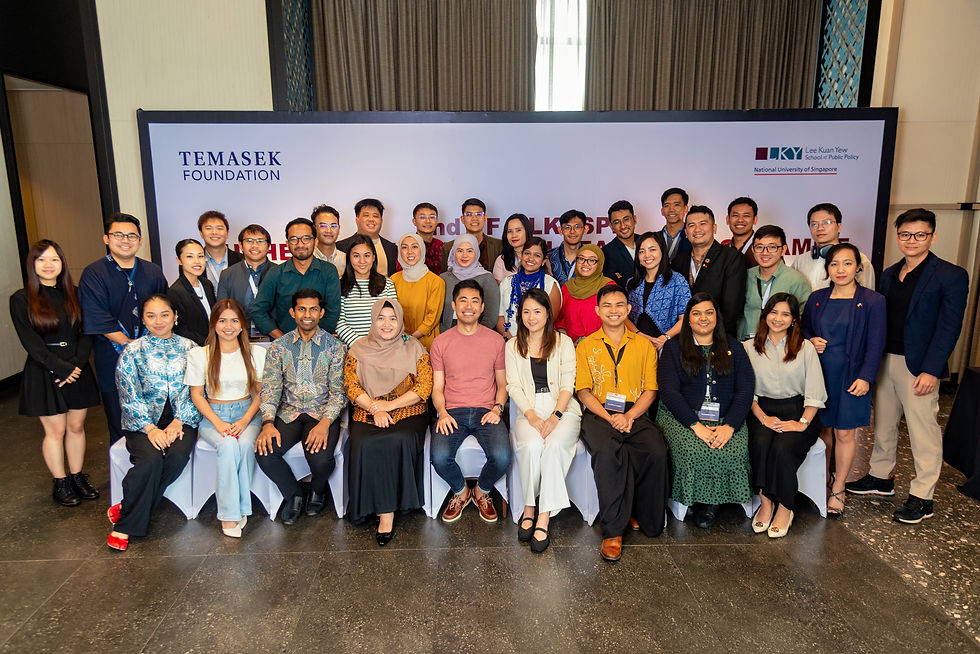FNI and UP IMLOS launches Primer on PH Maritime Zones
- ARS Editorial Staff

- Jul 30, 2021
- 3 min read
Updated: Oct 1, 2021

[PRESS RELEASE]
Last modified: 3 August 2021 | 14:28
The Foundation for the National Interest (FNI) together with the University of the Philippines Institute for Maritime Affairs and Law of the Sea (UP IMLOS) launched a publication entitled “Working Together to Secure Our Seas: A Primer on Philippine Maritime Zones” authored by a seasoned diplomat, retired Ambassador Gilbert Asuque, via Zoom on 29 July 2021.
Ambassador Gilbert Asuque, was formerly the Philippine’s Permanent Representative to the International Maritime Organization (IMO) from 2016-2018. Before retiring from the Department of Foreign Affairs (DFA) in 2019, he also served in various diplomatic capacities including as head of DFA Ocean Concerns Office.
The launch was attended by government officials, experts, professors and students from various universities nationwide.
During the launch, three distinguished experts were invited to give comments on the Primer: DFA Maritime and Oceans Affairs Assistant Secretary Angela Ponce, Department of Justice (DOJ) Senior State Counsel Fretti Ganchoon, and UP IMLOS Director Dr. Jay Batongbacal.
“His depth and expertise in maritime issues is truly reflected in this publication. The Primer is compact, but presents a clear, extensive and well researched discussion on Philippine national territory focusing on our maritime domain. We really need this publication, we thank Amb. Asuque for this much needed contribution to our narrative,” DFA Assistant Secretary Ponce said.
Prof. Batongbacal said the Primer should be seen as a companion piece to Amb. Rodolfo Severino’s Where in the World is the Philippines? which raises questions on national territory and maritime jurisdiction. The Primer provides answers to those questions raised. Moreover, he mentioned that there are actors that actively produce fiction, and actively inject misinformation and disinformation to weaken the resolve of the Filipino people in defending our rights under international law. “This Primer is one of the key references that is really needed to effectively combat this insidious effort,” he said.
“It is an important contribution to our pool of references as we strengthen our understanding of the Law of the Sea, and to counter disinformation as well as a good reference for all public servants, colleagues in the government as we continue our work in putting to order our archipelagic and maritime house”, DOJ Senior State Counsel Ganchoon said.
“This is about the future of our archipelagic territory, raising rhetoric to a higher level and respect for and compliance to the treaties,” Amb. Asuque emphasized during the launch. He added that maritime conflicts should be resolved by using peaceful means free from force and through a democratic debate.
Amb. Asuque ended his short discussion with a question and a statement: "What are we Filipinos prepared to do? The FNI and its partners are prepared to work with Congress in the passage of a maritime zones law.”
The Primer provides a holistic discussion on the United Nations Convention on the Law of the Sea (UNCLOS) in relation to maritime zones, archipelagic waters and the strategic importance for legislating these zones. The Primer also comes at an appropriate time with the geopolitical situation in the region becoming more volatile; and the month of July marks the 5th anniversary of the South China Sea Arbitration Award.
The Maritime Zones Primer is divided into four overarching chapters. The first two chapters cover the national territory of the Philippines in its entirety, including its colonial legacies, domestic laws institutionalizing the country’s claims in the West Philippine Sea, and how the maritime zones are made compatible with UNCLOS. Chapter three discusses the important points of the Philippines’ monumental win against China at The Hague and its implication for the country’s claim in the West Philippine Sea. Lastly, the fourth chapter explores practical approaches on how to build maritime “fences”.
The Primer is available for free and may be accessed in the Publications section of the website.
Screenshots of the event is found below.
























Comments